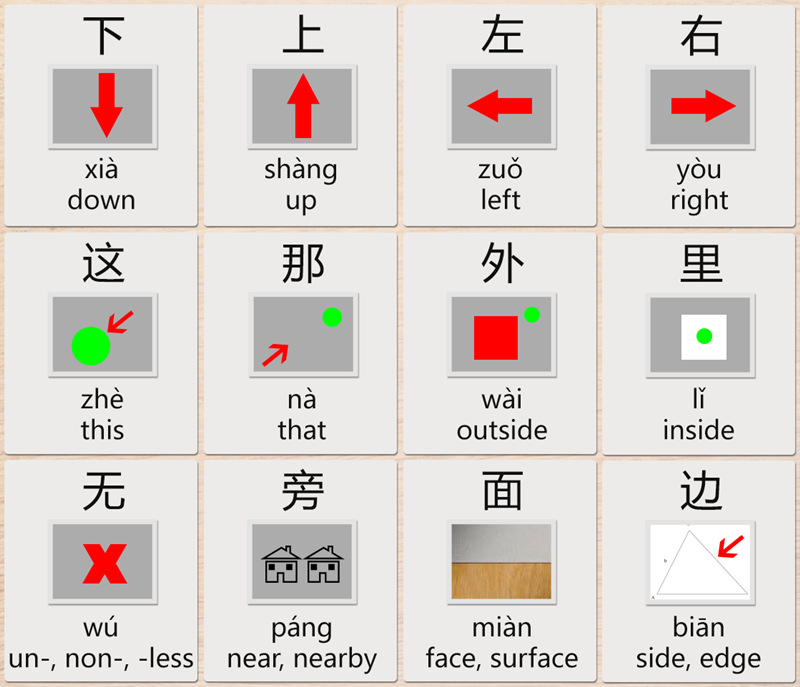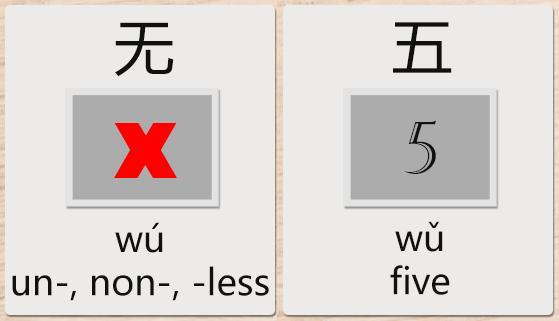All about Location Words
In English and many other languages, people will discuss about locations using prepositions. In Chinese language, 方位词 (fāng wèi cí or nouns of locality) are used for this purpose. Here is a list of the most common words to describe location.
上 (shàng) – up
下 (xià)– down
里 (lǐ) – inside
外 (wài) – outside
旁 (páng) – near
左 (zuǒ) – left
右 (yóu) – right
If you have read my previous post about Chinese numbers and the names of months, you already know how the multiplicative principle works in Chinese word building process. For words of locations, it works the same way. Just put面 (miàn) – surface or 边 (biān) – side after the character itself. Here is a list of how it would be used in Chinese:
上面 / 上边 (shàng miàn / shàng biān) – top, above
下面 / 下边 (xià miàn / xià biān) – below, under
里面 / 里边 (lǐ miàn / lǐ biān) – inside
外面 / 外边 (wài miàn/ wàibiān) – outside
旁边 (páng biān) – nearby
左边 (zuǒ biān) – on the left
右边 (yòu biān) – on the right
The demonstrative pronouns may be combined with边 (biān) as well:
这边 (zhè biān) – here (literally means “this side”)
那边 (nà biān) – there (literally means “that side”)
Once again, after learning only twelve Chinese characters you actually know very many useful Chinese words and phrases! We only have one more word to your vocabulary:
无边 (wú biān) – endless, boundless
无 (wú) is used for negating some Chinese words and may be translated into English with either suffix – less or a prefix (non-, un-, etc.). By the way, don’t mix it with the 五(wǔ) character (remember, we learnt about it last week?)
We can see how Chinese is simpler than you think. After only learning 12 Chinese words, you can say and understand how to describe where you are. So continue to make it simple and make learning Chinese fun! See you next time!







This Post Has 0 Comments